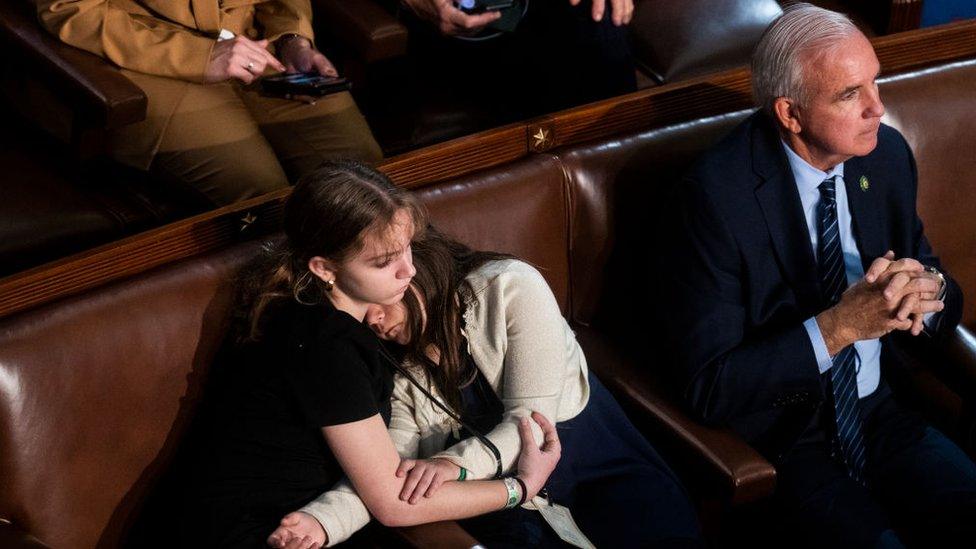Kevin McCarthy hopes for deal as US House Speaker fight hits day four
- Published
Watch: McCarthy says his party has to learn to work together
Members of the US House of Representatives will try for a fourth day to elect a Speaker on Friday in an attempt to end a political impasse.
The frontrunner, Republican Kevin McCarthy, has so far failed to reach the 218 votes required for election.
And there is still no clear sign that any deal will win over enough colleagues to get him over that mark.
There have so far been 11 failed votes - a paralysis of government not seen since the pre-Civil War era.
The reason for him falling short is a right-wing cohort within his own party refusing to vote for him.
Mr McCarthy needs to ease the concerns of enough Republican holdouts - 16 out of 20 - to win him the speakership.
This is nearly always a formality in US politics at the start of a Speaker's two-year term following congressional elections.
For more than a day now, there has been talk of concessions Mr McCarthy could make to win them over. As talks proceed, the outlines of a potential deal have become more clear.
His hope at this point seems to be that if he can convince some of them to back him, there will be sufficient pressure on the others to throw in the towel and give up the fight.
Progress is slow and, as some McCarthy supporters grow restless, a resolution - if it comes - could still be days away.
Mr McCarthy had already offered compromises that would have weakened the Speaker's role in the House. However, these haven't been enough to break the impasse.
The Speaker of the House is the second in line to the presidency, after Vice-President Kamala Harris. They set the agenda in the House, and no legislative business can be conducted there without them.
Without a Speaker, some key functions of the House cannot be conducted - including the swearing in of members, forming committees and the passing of bills.
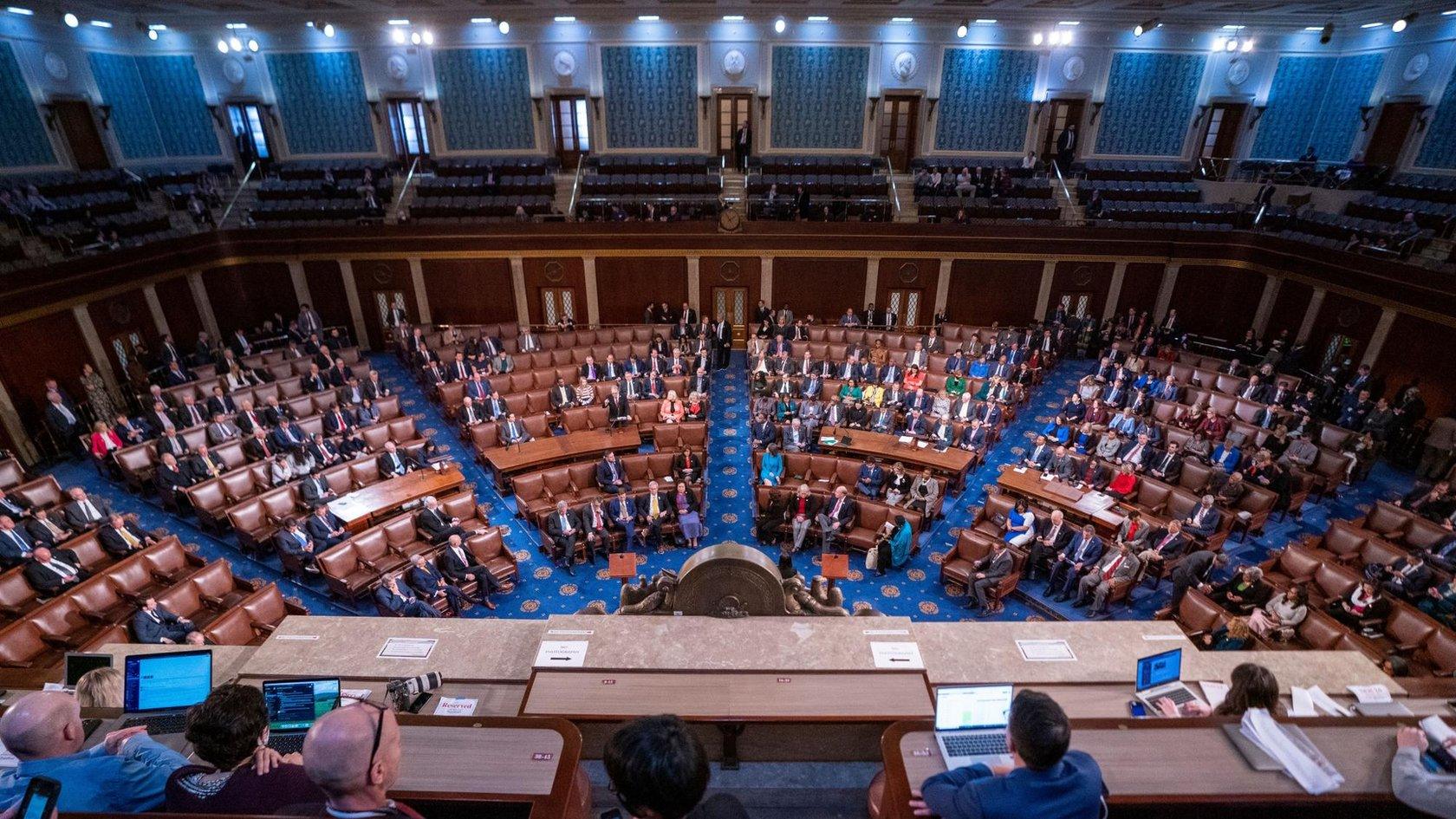
The so-called "Never Kevins" who are standing in Mr McCarthy's way are sceptical of the California congressman's conservative bona fides, despite his endorsement from former President Donald Trump.
Their votes are crucial because Republicans took over the House in November's midterm elections by only a slender margin of 222 to 212 in the 435-seat chamber.
There haven't been many indications that a deal is imminent, however.
One staunch member of the holdout group, Congressman Matt Gaetz, told reporters on Thursday night that he won't support any deal that "results in Kevin McCarthy becoming speaker".
The last ballot that took place on Thursday before the House was adjourned saw Mr McCarthy earn 200 votes, while 12 Republicans voted for Byron Donalds and seven for Kevin Hern. Mr Gaetz cast a protest ballot for Mr Trump to serve in the role.
Not since 1860, when the United States' union was fraying over the issue of slavery, has the lower chamber of Congress voted so many times to pick a Speaker. Back then it took 44 rounds of ballots.
Meanwhile, the minority Democrats continued to vote in unison for their leader, New York's Hakeem Jeffries, the first black person ever to lead a party in Congress. But it still seems unlikely that he could win over six Republican defectors to become Speaker.
Friday's voting will also take place on the second anniversary of the US Capitol riots, when a mob of Donald Trump supporters tried to stop Congress from certifying the Republican's 2020 election defeat.
Related topics
- Published6 January 2023
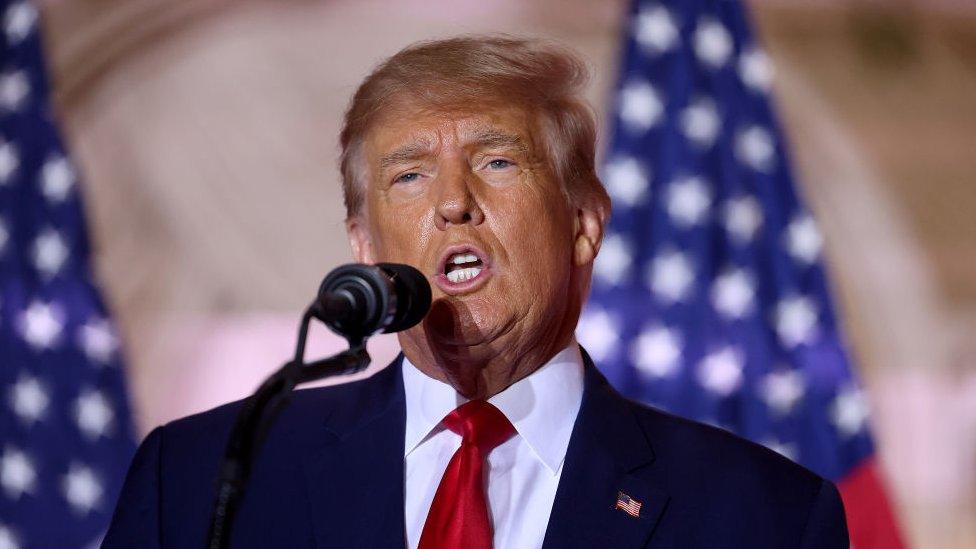
- Published6 January 2023
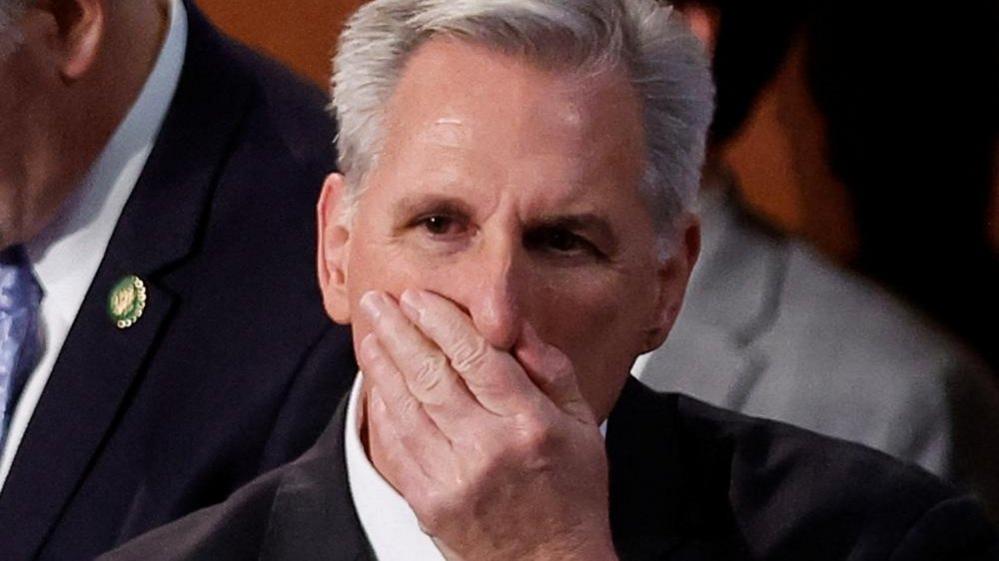
- Published5 January 2023
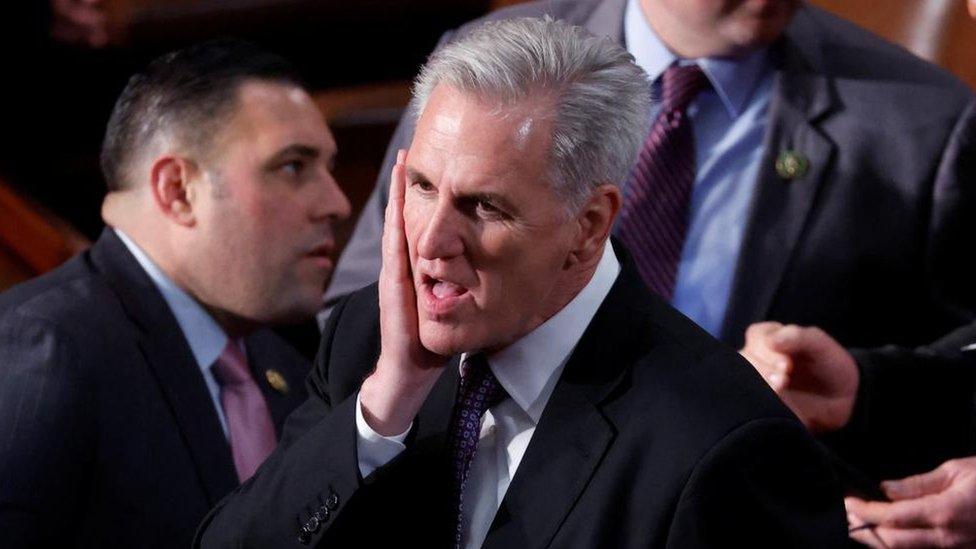
- Published5 January 2023
